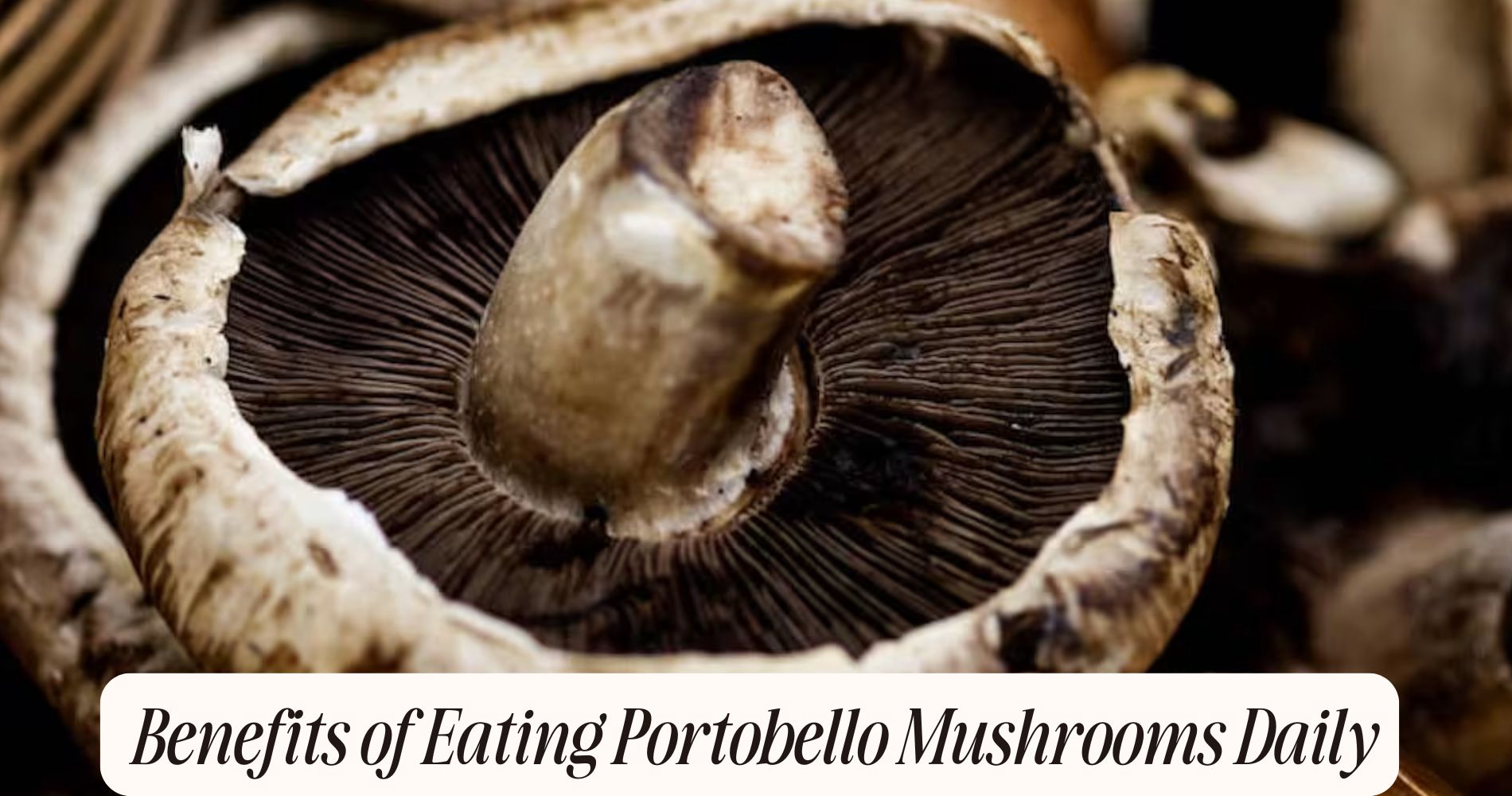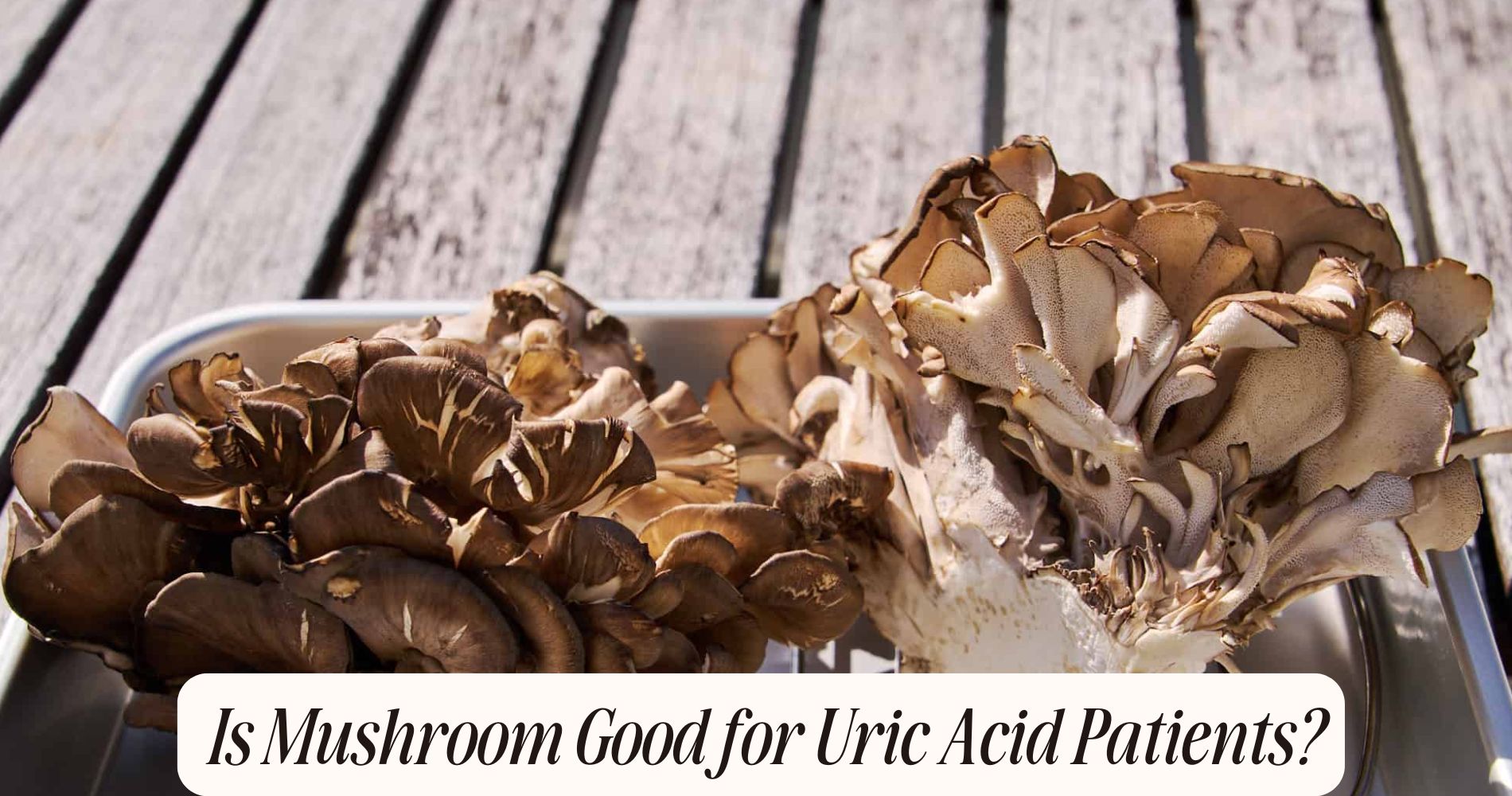
Do Mushrooms Really Help with Bloating?
Do mushrooms help with bloating? Yes, mushrooms can help reduce bloating thanks to their high fiber content and beneficial polysaccharides. Fiber acts as a prebiotic, promoting a healthy gut microbiome, which is essential for digestion. Mushrooms like shiitake and oyster are particularly noted for their potential to alleviate bloating. They contain compounds that support gut bacteria and may even reduce inflammation. However, individual responses can vary, so it's important to notice how your body reacts. Incorporating different types of mushrooms into your meals can enhance your diet and support digestive health. You'll discover more ways to benefit from mushrooms and gut health here.
Understanding Bloating
When you experience bloating, it often feels uncomfortable and can disrupt your daily routine. Bloating is typically characterized by a feeling of fullness or swelling in the abdomen, and it can be triggered by various factors.
Common bloating causes include overeating, eating gas-producing foods, and food intolerances, such as lactose or gluten sensitivity. Stress and hormonal changes can also play a significant role in your bloating symptoms.
You might notice that certain foods like beans, broccoli, and carbonated beverages contribute to your discomfort. Additionally, swallowing air while eating or drinking can worsen the sensation.
Other symptoms often accompany bloating, including abdominal pain, cramping, and excessive gas. In some cases, bloating could indicate an underlying digestive issue, such as irritable bowel syndrome (IBS) or other gastrointestinal disorders.
To manage bloating effectively, consider keeping a food diary to identify potential triggers. Paying attention to portion sizes and eating slowly can also help.
If your symptoms persist or worsen, consulting a healthcare professional is essential to rule out any serious conditions and to discuss appropriate treatment options.
Understanding the causes and symptoms of bloating is the first step toward finding relief.
Types of Mushrooms
Bloating can be influenced by various dietary choices, and one food group that often raises questions is mushrooms. You'll find a range of mushroom types, each with unique characteristics and potential effects on your digestive health.
Culinary varieties like shiitake, portobello, and cremini are commonly used in dishes for their rich flavors and textures. These mushrooms not only enhance meals but also offer some medicinal properties. For instance, shiitake mushrooms are known for their immune-boosting effects, while portobellos are a great source of important nutrients.

On the other hand, certain mushrooms, like chanterelles or oyster mushrooms, may be gentler on your digestive system, making them less likely to contribute to bloating.
It's also worth noting that some foraged mushrooms, such as morels, can introduce new flavors but may require proper cooking to avoid digestive discomfort.
Ultimately, understanding the types of mushrooms you consume can help you make better dietary choices. By selecting the right culinary varieties, you can enjoy the benefits of mushrooms while minimizing any potential bloating effects.
Nutritional Benefits of Mushrooms
Mushrooms pack a powerful punch when it comes to nutrition, offering an impressive array of vitamins, minerals, and antioxidants. Different mushroom varieties, such as shiitake, portobello, and cremini, each bring unique health benefits to your plate. For instance, shiitake mushrooms are known for their immune-boosting properties, while portobellos are rich in potassium, supporting heart health.
Incorporating mushrooms into your diet can enhance your overall nutritional intake. They're low in calories yet high in fiber, making them an excellent choice for those looking to manage their weight.
Plus, they provide essential nutrients like B vitamins, which aid in energy production, and selenium, a powerful antioxidant that helps protect your cells.
You can enjoy the culinary uses of mushrooms in various dishes—whether sautéed, grilled, or added to soups and stews. Their umami flavor can elevate meals while providing health benefits.
Whether you're a fan of wild mushrooms or prefer cultivated varieties, including them in your diet can contribute to a balanced and nutritious eating plan. Remember, the more diverse your mushroom choices, the broader the spectrum of nutrients you'll enjoy!
How Mushrooms Affect Digestion
Mushrooms offer a unique nutritional composition that can greatly impact your digestion.
Rich in fiber, they support gut health by promoting the growth of beneficial bacteria.
Understanding how these elements work together can help you make informed choices about including mushrooms in your diet.
Nutritional Composition of Mushrooms
When considering dietary choices, the nutritional composition of mushrooms plays a significant role in how they affect digestion. These fungi are low in calories and high in essential nutrients, making them a smart addition to your meals.
Different mushroom varieties, like shiitake, portobello, and button mushrooms, offer unique flavors and textures, enhancing your culinary uses while providing health benefits.

Mushrooms are rich in vitamins such as B-complex vitamins, which are vital for energy metabolism. They also contain minerals like selenium, potassium, and copper, supporting various bodily functions.
Their antioxidant properties can help combat oxidative stress, potentially benefiting your overall health.
Additionally, mushrooms are a source of polysaccharides, which can have a positive impact on your digestive system. While the specific effects on bloating may vary, incorporating mushrooms into a balanced diet can contribute to nutrient diversity and support digestive health.
Ultimately, understanding the nutritional composition of different mushroom varieties can empower you to make informed choices that align with your dietary needs and preferences.
Fiber and Gut Health
Incorporating fiber-rich foods into your diet can greatly enhance gut health, and mushrooms are a valuable source of this essential nutrient. They contain prebiotic fiber, which acts as food for the beneficial bacteria in your gut microbiome. These bacteria play a significant role in digestion, helping to break down food and absorb nutrients effectively.
Research shows that consuming prebiotic fiber can promote a diverse gut microbiome, which is linked to better overall health. When you eat mushrooms, you're not just adding flavor to your meals; you're also supporting the growth of good gut bacteria. This can lead to improved digestion and reduced bloating, as a healthy microbiome can help regulate gas production and ease digestive discomfort.
Moreover, mushrooms are low in calories and high in nutrients, making them an excellent addition to a balanced diet. By regularly including them in your meals, you can harness their fiber content to benefit your gut health.
Just remember to stay hydrated, as fiber works best when combined with plenty of water. So, next time you cook, consider adding mushrooms to reap these digestive benefits!
Scientific Studies on Mushrooms
If you're curious about the health benefits of mushrooms, you'll find a wealth of scientific studies exploring their impact on various aspects of human health, including digestive issues like bloating.
Research has highlighted that certain mushroom compounds, such as beta-glucans and polysaccharides, can positively influence the gut microbiome. These compounds may promote the growth of beneficial bacteria while inhibiting harmful strains, potentially leading to improved digestion.
Several studies have shown that incorporating mushrooms into your diet can enhance gut health, which is vital for reducing bloating. For instance, a study published in the Journal of Nutrition found that participants who consumed mushrooms experienced a significant increase in beneficial gut bacteria, which correlates with reduced bloating symptoms.
Additionally, mushrooms such as shiitake and maitake contain prebiotic properties that further support gut health by feeding good bacteria.

However, it's important to note that individual responses to mushrooms can vary. While some might find relief from bloating, others may experience discomfort, especially if they've sensitivities.
Incorporating Mushrooms Into Your Diet
Incorporating mushrooms into your diet can enhance your meals while offering various health benefits.
You'll find a range of beneficial types, such as shiitake, maitake, and reishi, each with unique properties.
Plus, with easy mushroom recipes, you can enjoy their flavors and advantages without much hassle.
Types of Beneficial Mushrooms
Many people overlook the diverse types of beneficial mushrooms that can enhance their diet and overall health. For instance, shiitake mushrooms aren't just a popular culinary choice; they also have medicinal properties that support immune function. These mushrooms contain beta-glucans, which are known to help reduce inflammation and improve gut health.
Another excellent option is reishi mushrooms. Often called the "mushroom of immortality," reishi has been used in traditional medicine for centuries. Its adaptogenic properties may help your body manage stress, potentially aiding digestion and reducing bloating.
Lion's mane mushrooms are gaining attention for their neuroprotective and digestive benefits. They can stimulate the production of nerve growth factor (NGF), which may support cognitive function and gut health. Incorporating lion's mane into your meals can offer both flavor and health advantages.

Lastly, consider adding oyster mushrooms, which are rich in nutrients and have been shown to lower cholesterol levels. Their culinary uses are versatile, making them an easy addition to various dishes.
Easy Mushroom Recipes
Adding mushrooms to your meals is a simple yet effective way to boost flavor and nutrition. These versatile fungi can easily fit into your diet, helping you enjoy their health benefits without much hassle.
For a quick and nutritious dinner, try a mushroom stir fry. Start by sautéing a mix of your favorite vegetables—like bell peppers and broccoli—in a bit of olive oil. Add sliced mushrooms and cook until they're tender. Season with soy sauce, garlic, and ginger for a savory dish that's both satisfying and easy to prepare.
If you're looking for something comforting, consider making mushroom soup. Begin by sautéing onions and garlic until they're fragrant. Add chopped mushrooms and cook until browned.
Then, pour in vegetable broth and let it simmer. Blend until smooth for a creamy texture, or leave it chunky for added bite. Spice it up with herbs like thyme or rosemary for extra flavor.
Incorporating mushrooms into these recipes not only enhances taste but also provides nutrients that may help with digestion, potentially reducing bloating. Enjoy experimenting with these easy mushroom recipes!
Other Remedies for Bloating
Bloating can be uncomfortable and frustrating, but fortunately, several remedies can help alleviate this common issue. One effective option is to sip on herbal teas like ginger or peppermint. These teas not only soothe the digestive tract but also promote the expulsion of gas. Studies indicate that ginger can relax the intestinal muscles, reducing bloating.
Another remedy worth considering is the use of digestive enzymes. These supplements help break down food more efficiently, which can minimize gas and bloating. If you often experience bloating after meals, incorporating digestive enzymes into your routine might provide relief. Consult with a healthcare professional to find the right enzyme for your specific digestive needs.
Additionally, staying hydrated is essential. Drinking plenty of water can help flush out excess salt, which may contribute to bloating. Regular physical activity also promotes digestion and can ease discomfort.
Ease Bloating Naturally with SUPER MUSHROOM GUMMIES
Curious do mushrooms help with bloating? Experience the digestive benefits of 10 powerful mushrooms with Well Gummies' SUPER MUSHROOM GUMMIES. These easy-to-chew gummies support gut health, boost immunity, and provide calm energy with no jitters or crash. Featuring a delicious wild berry flavor, they offer a simple way to enhance digestion and overall well-being. Add them to your daily routine for a tasty and effective solution to keep your gut happy and healthy!
Frequently Asked Questions
Can Mushrooms Cause Bloating in Some Individuals?
Yes, certain mushroom varieties can cause bloating in some individuals due to their individual sensitivities. Factors like fiber content and personal digestion differences play a role, so it's crucial to listen to your body's reactions.
Are There Specific Mushroom Varieties Best for Bloating Relief?
Certain mushroom varieties, like shiitake and reishi, may aid bloating relief due to their anti-inflammatory properties. Incorporating these mushrooms into your diet could potentially improve digestive health, but individual responses can vary considerably.
How Should Mushrooms Be Prepared to Aid Digestion?
To aid digestion, you should sauté mushrooms to enhance their flavor and release digestive enzymes. Steaming or roasting also works well, helping your body absorb nutrients effectively while minimizing gas and bloating from undercooked varieties.
Are Mushroom Supplements as Effective as Fresh Mushrooms?
Mushroom supplements can offer similar benefits to fresh mushrooms, but their nutrition varies based on processing. You should consider supplement efficacy and choose high-quality products to guarantee you're getting the nutrients you need for peak digestion.
Can Consuming Mushrooms Worsen Existing Digestive Disorders?
Consuming mushrooms can sometimes worsen digestive disorders due to their mushroom fiber content, which may be tough to digest. However, they also provide beneficial digestive enzymes that can aid in overall gut health when consumed appropriately.
Conclusion
Incorporating mushrooms into your diet could be beneficial for reducing bloating, thanks to their nutritional properties and fiber content that support digestion. While research is still evolving, certain types of mushrooms may offer unique benefits. However, it's crucial to take into account individual responses and consult with a healthcare professional if bloating persists. Alongside mushrooms, exploring other remedies can provide a well-rounded approach to managing digestive discomfort. Always listen to your body and adjust your diet accordingly.




